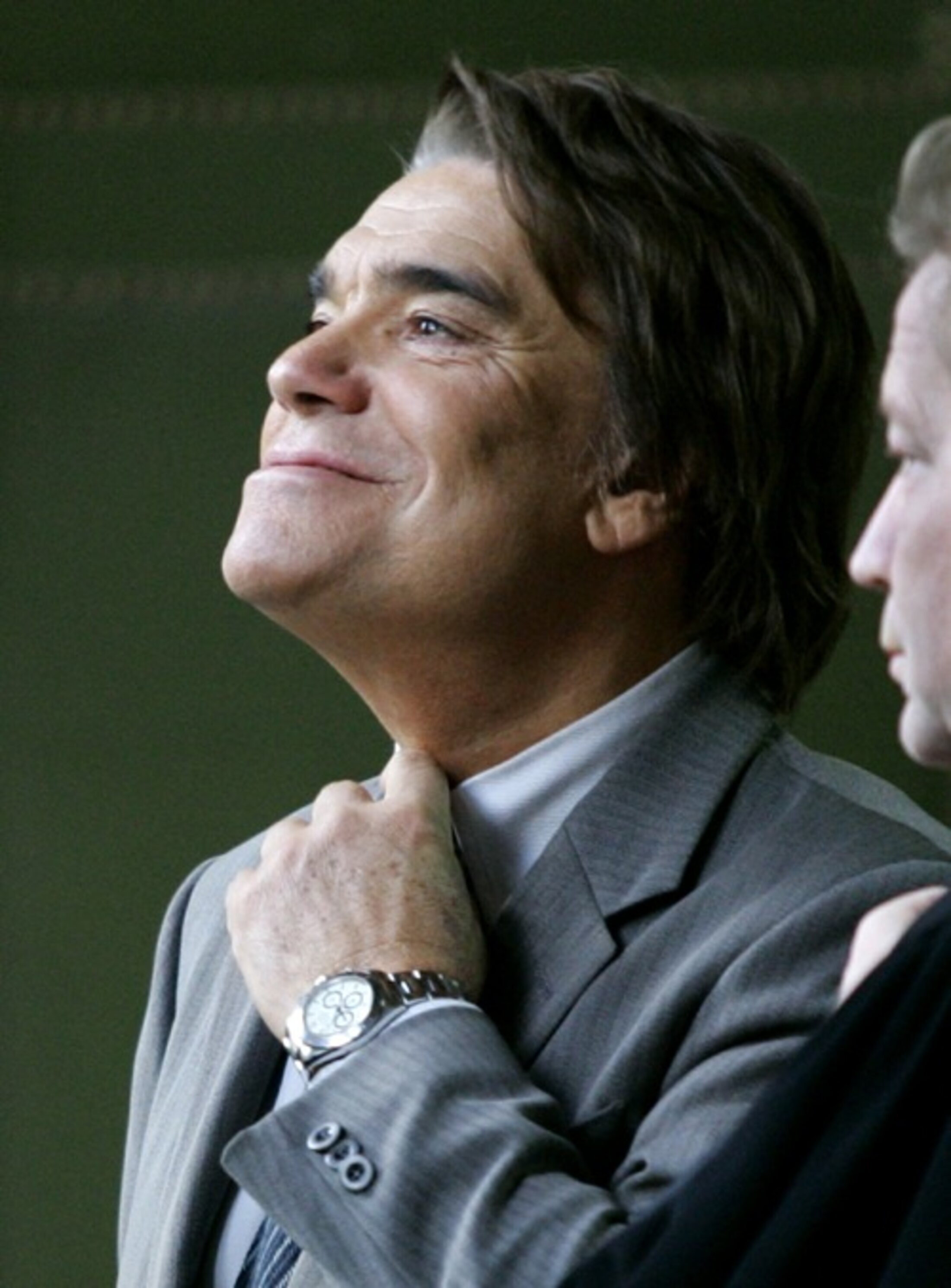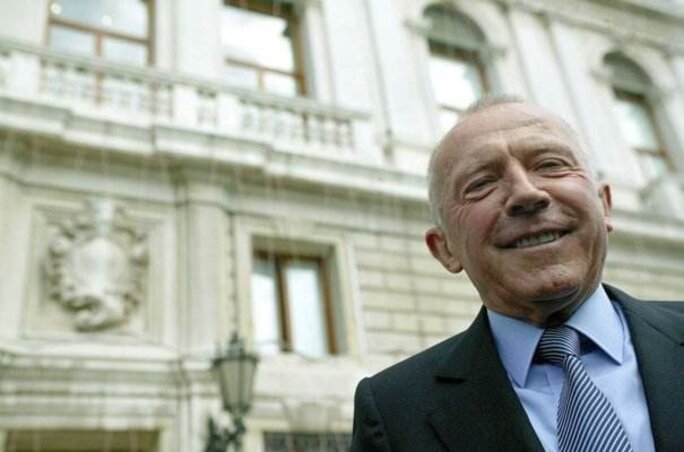Why are some of the biggest names in French business bidding for a bankrupt press group in the south of France? The story has all the hallmarks of a typical French business intrigue. Several prominent personalities, including billionaire François Pinault, colourful businessman, politician and entertainer Bernard Tapie and Franco-Lebanese arms dealer Iskandar Safa, are vying to buy all or part of the southern branch of Groupe Hersant Média, which is in receivership. Its assets include daily newspapers La Provence, Nice-Matin, Var-Matin and Corse-Matin.
This curious story has been bubbling up for several weeks now and has generated as many denials as rumours, true or false. But why would loss-making newspapers attract such interest?
Tapie, for example, admits his interest in the media group. But he also swears he will never go back into politics – he was a Member of Parliament and served as a minister in a Socialist government in the early 1990s – and denies planning to use ownership of the newspaper to launch a bid to become mayor of Marseille in 2014. Billionaire François Pinault, whose company, PPR, owns luxury and fashion labels ranging from Gucci to Samsonite as well as the Au Printemps department store in Paris, seemingly has nothing to gain and a great deal of money to lose from such a venture.

Enlargement : Illustration 1

According to a number of very reliable sources contacted by Mediapart, the key to the mystery is simple: despite his denials, Tapie does indeed covet the seat of power at Marseille City Hall. He is said to have tacit support for this from his friend and former lawyer Jean-Louis Borloo, a centrist politician who served as a minister in former president Nicolas Sarkozy's right-wing government but who has recently formed a new centrist party, the Union of Democrats and Independents (UDI).
Tapie's own political allegiances have been just as fluid. Although formerly allied with the Socialist Party and a member of the left-wing Parti Radical de Gauche, he backed Sarkozy in the 2007 presidential election.
But it seems President François Hollande got wind of Tapie's secret plan and is trying to capsize it. The new presidency at the Élysée Palace wants a Socialist candidate to take over from the retiring mayor of Marseille, Jean-Claude Gaudin, who is a prominent member of Sarkozy’s UMP party. In a bid to stop Tapie's plan in its infancy, Hollande is said to have just as secretly asked François Pinault – a friend of former President Jacques Chirac, who is hostile to Sarkozy – to step in and block Tapie by also bidding to buy La Provence.
So behind the public bid battle for the Hersant newspapers is an invisible, as yet undeclared, power struggle for Marseille, France’s second largest city and largest commercial port. The public part is now starting to take shape. In an interview with France Bleu Provence radio last week Tapie openly declared his interest in taking a stake in Hersant Média’s southern branch, while denying having any interest in becoming mayor of Marseille.
"I'm not interested in La Provence but in a stake in all the dailies in the south," Tapie told France Bleu Provence, adding that Hersant's shareholders were not offering to sell individual newspapers at the moment.
"Either they find a solution that satisfies both the Tribunal de Commerce[Editor's note: commercial court] and the bankers," he said, "(…) or they don't, and at that point other solutions will be considered. I am one of those solutions, no more."
Tapie said that 4,000 jobs were on the line and underlined the role newspapers can play in revitalising a region. Asked if this were a hard deal to make succeed, he said he had always taken on difficult challenges, citing his purchase and resale of the luxury yacht Phocea and his involvements with former Tour de France champion Bernard Hinault and Marseille football team Olympique de Marseille.
Asked about media reports of his interest in becoming the mayor of Marseille in 2014, he emphatically denied such ambitions, saying it was a "triple idiocy". Linking his interest in the Hersant newspapers with the next municipal election would be "unspeakably ridiculous", he said. "That's not how I would go about it. I would go directly out on the pavements and into the markets."
"Marseille and I, we have a history that was interrupted," he added, explaining his interest in the deal.
The cast: rags-to riches Tapie, discreet Mr. Borloo and billionaire Pinault
Mediapart learned last week that François Pinault is also interested in buying all or part of Hersant's southern newspapers. This is surprising, since nowadays Pinault, 76, keeps his distance from the business community – his son François-Henri has been running the family empire for many years – and also, unlike some other prominent French captains of industry, he has never ventured into the national or regional daily press. The only media he controls are right-wing weekly news magazine Le Point and a handful of specialist publications such as Historia and La Recherche.

Enlargement : Illustration 2

And it has also emerged that Safa is in the running to buy Nice-Matin and Corse-Matin though not La Provence. Safa is being advised by Étienne Mougeotte, right-hand man for Serge Dassault, the industrialist and UMP senator who owns national daily Le Figaro, of which Mougeotte was editorial director until last summer. Before that Mougeotte was the number two at TF1, France’s biggest privately-owned television station, which like Le Figaro was seen as pro-Sarkozy during his presidency.
Safa, a very wealthy intermediary in arms deals, was linked in the past with unexplained payments to intelligence officer and politician Jean-Charles Marchiani, who is close to the former interior minister Charles Pasqua. Safa was also questioned by police over paying to have a favourable article published in Le Point in 2005.
These businessmen’s interest in Hersant’s Provence, Riviera and Corsica dailies is hard to explain in strictly business terms. Tapie, whose fortunes have twice veered from rags to riches, is rolling in cash since obtaining a favourable but highly contested settlement in 2008 over Crédit Lyonnais’s handling of the sale of his stake in sportswear firm Adidas in the early 1990s. Tapie pocketed a fortune in damages over the case (initial reports put the total at 230 million euros though it has since emerged that the true figure is around 304 million euros). Yet buying into Hersant's regional newspapers would seem a risky undertaking for him, particularly as he advises his son Laurent, who manages the Tapie fortune, not to invest in France in case the judicial battle were to go against him one day.
But our sources shed light on their seemingly incoherent behaviour. For Tapie, taking control of La Provence would be a first step towards winning Marseille City Hall, which he has set his sights on winning in municipal elections in 2014. This step was to remain secret as long as possible.
In this venture Bernard Tapie has determined, if discreet, support from Borloo, who was his lawyer during the 1980s. Borloo has shared Tapie's secrets over the years and has come to his aid as often as possible, including during the Crédit Lyonnais case.
According to a report from the Cour des Comptes, the French national audit office, when Borloo became finance minister in 2007, a job he only held for a few days before being appointed environment minister, one of his main acts was to instruct his chief of staff to instigate an out-of-court arbitration procedure over Tapie’s claims against Crédit Lyonnais.
President Hollande lunched with Pinault
Borloo, having just founded a new centrist party, is said to be far from unhappy that Tapie should try to wrest Marseille City Hall from long-standing UMP control, particularly in view of the current crisis dividing the UMP, which has just failed to convincingly elect a new leader after losing presidential and legislative elections earlier this year.
And Mediapart understands he is not the only one to have encouraged Tapie in this venture. According to very reliable sources, Sarkozy himself had envisaged the Tapie option for Marseille before losing last May's presidential election, as he believed the local UMP leader, Renaud Muselier, had lost all credibility. Muselier has since quit his post.
The secret plan for Tapie to be a candidate in Marseille has, however, become known in the opposing camp and is taken so seriously that, at the very summit of power, a search was discreetly begun to find a way to torpedo Tapie's ambitions. The idea was to begin by sabotaging the first stage, the purchase of La Provence by a consortium of investors led by Tapie.
[asset|aid=189816|format=250_pixels|formatter=imagecache|title=President+François+Hollande+invited+Pinault+to+lunch.|align=right|href=]That was the reason for a secret meeting last week at the Élysée Palace, revealed by Le Figaro and confirmed by reliable sources. Hollande invited Pinault to lunch and strongly encouraged him to bid for La Provence.
The idea may appear astonishing, as François Pinault has always been politically of the Right and has been a very close friend of former president Jacques Chirac for a long time. The magazine that he currently owns, Le Point, defends, often with enthusiasm, the values of that political camp.
Nonetheless, the Left seems to have taken the view that given the divisions on the Right the city of Marseille is winnable in the 2014 elections. However, first it has to ruin the chances of Tapie, a maverick character who complicates the political landscape, especially in the current mood of populism in the country.
This prompted the idea in the highest echelons of state that if Pinault could at least play a role in thwarting Tapie's local press ambitions, that would be a worthwhile act. Le Point's boss Franz-Olivier Giesbert has thus called for help in preparing a takeover plan. Time is of the essence, for according to our sources the future of the four dailies will be decided in the next two weeks. This leaves Le Point's boss little time to come up with a successful plan.
But will a quick rescue plan make a difference anyway? It seems that Bernard Tapie has some very influential and effective supporters. These include not just Jean-Louis Borloo but also, some suspect, the support of juges consulaires or lay judges at the commercial court who are working in the background of the newspaper group takeover to ensure that Bernard Tapie and his interests are looked after.
There would be nothing very surprising in this. Right through the Crédit lyonnais scandal it often seemed as if Tapie benefited from the support of people close to Freemasonry – some of them better known for their business connections that their ethics. At the highest levels of state there are suspicions that those same underground friendships might be at work again in the present case, and that certain lay judges at the commercial court may indeed be working in Tapie's interests.
In summary, the Battle for Marseille has begun, against a background of intrigues and little plots. And even if the future of four daily newspaper is at stake, it is far from certain that for the potential investors involved, their main priority is the public’s right to be informed.
------------------------------------------
English version: Sue Landau and Michael Streeter
Editing by Michael Streeter


